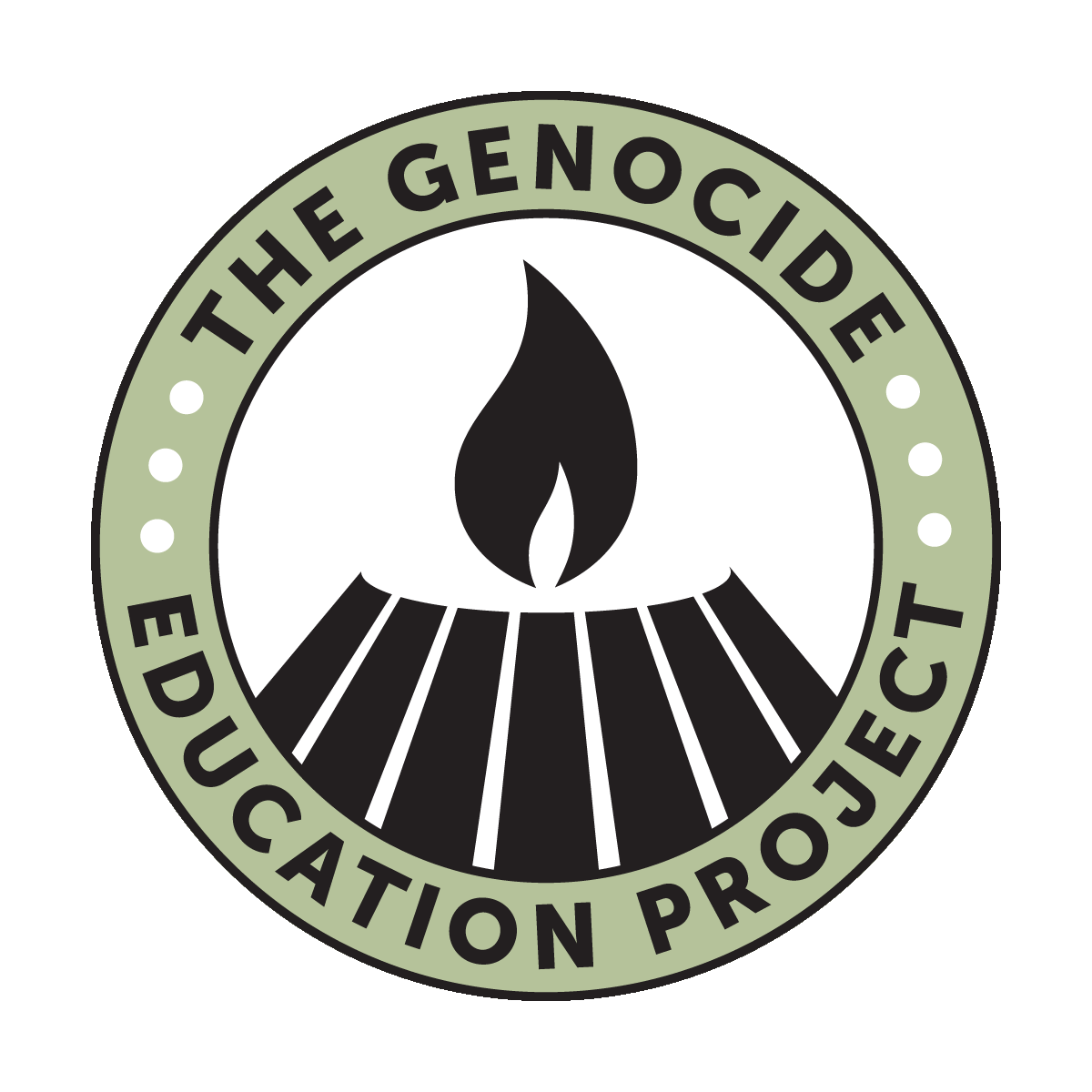14.01.2022

Teaching about genocide will be mandatory in middle and high schools in the state of Massachusetts in the United States of America. On February 2, 2021 a group of lawmakers submitted bill No. 692
[1]to the Massachusetts Senate and the House of Representatives for approval on teaching about genocide which was signed by the governor on December 2, 2021, thus gaining legal force. It will be implemented in the new academic year, from July 1, 2022
[2].
The bill is the result of 12 years of consistent work. It was drawn up by Senator Michael Rodrigues, who initially included only the history of the Jewish genocide in the draft. However, seeing the American public ignorance of the crimes committed against humanity during World War I and II, the bill was expanded to include other genocides of the 20th century. The law intends (a) To achieve and promote the teaching of human rights issues in all districts, with particular attention to the study of the inhumanity of genocide, including but not limited to the Holocaust, the Armenian Genocide, the Famine-Genocide in Ukraine known as Holodomor, the Pontian Greek Genocide, the forcible transport of Africans to the Americas in the slave trade in the seventeenth through nineteenth centuries, the violence committed against indigenous people in the Americas, and more recent atrocities in Bosnia, Cambodia, Rwanda, and Sudan
[3].
The law stipulates that the teaching of genocide history in the state should be conducted within history and social science frameworks and not as a separate school subject clarifying, at the same time, the funding for tuition, special school manuals and textbooks.
The AGMI directorate welcomed the adoption of the law and sent a letter of thanks to Senator Rodrigues. The letter stressed the importance of teaching genocide as a crime prevention factor and its importance for Armenia and the Armenian people and expressing willingness to provide materials to the Massachusetts Department of Education and other commonwealth institutions.
It should be noted that 19 US states have already implemented such laws, considering the teaching of the history of genocide and crimes against humanity as a precondition for educating respectful, tolerant and responsible citizens
[4]. Armenian Assembly of America Massachusetts State Chair Herman Purutyan said regarding the adoption of the law, that being born in Istanbul, he knows what it means to grow up in a country where not only is genocide not taught, but is also denied. Stressing the importance of the adoption of such state laws, he notes, “In fact, I first learned about the genocide when I came to this [USA] country in my 20s.”
[5].
It should be added that the resolution "Affirming the United States Record on the Armenian Genocide" adopted by the House of Representatives of the US Congress on October 29, 2019 (H.RES. 296)
[6], and the resolution "Expressing the sense of the Senate that it is the policy of the United States to commemorate the Armenian Genocide through official recognition and remembrance" (S.Res.150)
[7] of the Senate adopted on December 12, emphasise the need for Armenian Genocide education. Both resolutions address US policy of commemorating the Armenian Genocide, educating and publicising the facts of the Armenian Genocide, including the US humanitarian assistance, crimes against humanity and the Armenian Genocide itself.
US President Joe Biden's declaration on April 24, 2021 states: We honor the victims of the Meds Yeghern so that the horrors of what happened are never lost to history…. Let us also turn our eyes to the future—toward the world that we wish to create for our children. A world unstained by the daily evils of bigotry and intolerance, where human rights are respected, and where all peoples are able to pursue their lives in dignity and security”
[8]. It is hoped that such justifications and resolutions of the country's executive and legislative bodies will encourage other US states to make the teaching of genocide history mandatory in public schools.
It should be noted that the documents on the recognition and condemnation of the Armenian Genocide adopted by different countries also have proposals to make its history public or include it in educational programs. In this respect the most comprehensive is the resolution of the Bundestag of the Federal Republic of Germany, made on June 2, 2016. Recognizing the genocide of Armenians and other Christians in the Ottoman Empire, Germany also acknowledges the complicity of Imperial Germany in it. In particular, the resolution states that the Bundestag calls on the federal government to pay attention to the commemoration of the Armenian Genocide, obliging the German school, university and civic educational system to study the deportation and extermination of Armenians in order to understand the ethnic conflicts of the 20th century, including them in the curriculum and passing them on to future generations. With this document a significant role is specially reserved for the states of the Federal Republic of Germany. The German Bundestag welcomes any initiative to raise and support the issue. It is noted that, based on its own historical experience, Germany recognizes the difficulty of facing the dark chapters of its own past, but encourages its impartial examination
[9].
During a meeting with the President of the Republic of Armenia on September 25, 2015, the Minister of Education and Culture of Saxony-Anhalt, Stephan Dorgerloh, before the adoption of the document, presented some guidelines used by history teachers in the region and stressed; “We must tell people what happened in reality, tell the truth about the Armenian Genocide,”
[10] presenting the president with a collection of poetry written by German and Armenian pupils on the Armenian Genocide.
Teaching about genocide, other crimes against humanity and human rights violations is difficult but very important, because genocide education is one of the most effective ways to prevent the crime. Comprehensive teaching of the history of the Armenian Genocide, the first genocide of the 20th century, implemented by modern methods and ideology, is a serious international challenge, the proper solution of which will lead to an increase in the general awareness of the crime, the proper legal solution of the problem and will make the Armenian Genocide a part of world history and memory.
Taking into consideration the above-mentioned, the Armenian Genocide Museum-Institute will be hosting an international conference on "Challenges of Armenian Genocide Education in the 21st century"
[11] in April this year. The main aim being to develop a methodological basis for the teaching of the Armenian Genocide. The AGMI hopes that the conference will serve as a platform for teachers, lecturers, pedagogues, genocide scholars and human rights activists to share their experiences and offer relevant tools in the field of genocide education. It is planned, during the conference, to highlight a number of considerations for both pedagogues and politicians to help include genocide-related issues in public education systems and curriculums.
Regina Galustyan
[1] An act concerning genocide education, https://malegislature.gov/Bills/192/H692.
[2] An act concerning genocide education, https://malegislature.gov/Laws/SessionLaws/Acts/2021/Chapter98.
[3] An act concerning genocide education, https://malegislature.gov/Bills/192/H692.
[4] State Educational Requirements, https://genocideeducation.org/resources/state-educational-requirements/.
[5] Chris Van Buskirk, Ceremony amplifies importance of genocide education, https://www.gloucestertimes.com/news/ceremony-amplifies-importance-of-genocide-education/article_c3261d80-636d-11ec-83bc-9f08fce47b7e.html.
[6] Affirming the United States record on the Armenian Genocide, https://www.congress.gov/bill/116th-congress/house-resolution/296/text.
[7] Expressing the sense of the Senate that it is the policy of the United States to commemorate the Armenian Genocide through official recognition and remembrance, https://www.congress.gov/bill/116th-congress/senate-resolution/150/text.
[8] Statement by President Joe Biden on Armenian Remembrance Day, https://www.whitehouse.gov/briefing-room/statements-releases/2021/04/24/statement-by-president-joe-biden-on-armenian-remembrance-day/.
[9] German Parliament Resolution, https://www.armenian-genocide.org/Affirmation.528/current_category.7/affirmation_detail.html.
[10] President receives minister of education and culture of Saxony-Anhalt, Stephan Dorgerloh, https://www.president.am/en/press-release/item/2015/09/25/President-Serzh-Sargsyan-meeting-with-Stephan-Dorgerloh/.
[11] http://www.genocide-museum.am/arm/09.111.21.php:





